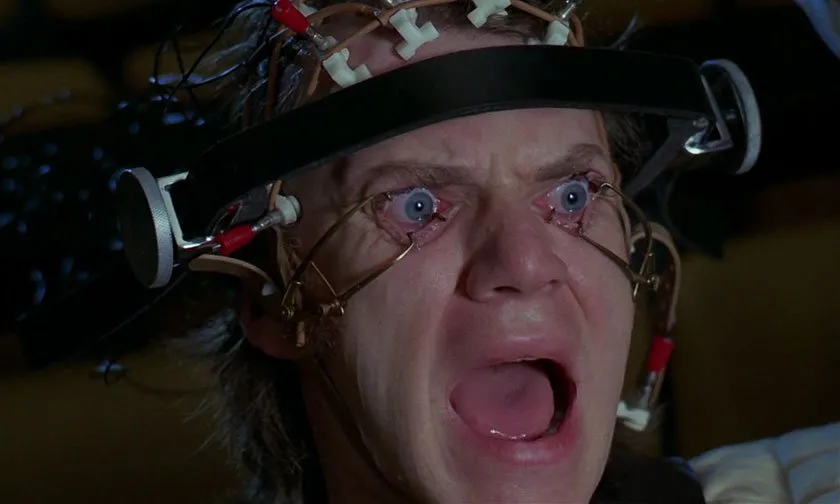The question of moral enhancement technologies is something "leaders" and "social scientists" have thought about for ways to "improve" human behavior. They think we might be better off if they induced "moral" obedience. But would the results even produce more morality? And would it really be moral to even do that? Why are they not trying to educate and provide accurate moral understanding through conscious willful effort on our part, instead of our default automatic intuitive attempts to live morally? Maybe they don't understand how to solve the problem properly.

Source
Recent research answers that moral enhancement technologies are not wise, nor feasible. I say it can't be done even if we wanted to, and it's foolish to want to (and even downright wrong/evil to do so). People who think we can force moral obedience instead of educating moral understanding are the fools. I think many authority figures would love a way to manipulate morality, for our own betterment and benefit of course, right?
The idea behind this is about using bio-medical technology to make people more moral, as if it's some mere physical attribute that can be tweaked. We've seen this play out in the past when behavior doesn't match up to the "expectations" others have with lobotomies making people into zombies. We have refined our brain surgery now they say, where some criminals can get some surgery for moral defects or take drugs to treat their behavior.
Well the research shows that even if you can manipulate or modify morality in people, you can't make sure they improve their behavior towards being more moral.
Researchers reviewed existing research on these technologies, like pharmaceutical interventions and neurostimulation techniques. 1) Oxytocin for social cognition, bonding and behavior. 2) SSRIs used to treat depression can make people less aggressive. 3) Amphetamines to motivate action. 4) Beta-blockers to decrease racist responses. 5) Transcranial magnetic stimulation (TMS) used for depression and affects moral dilemmas. 6) Transcranial direct current stimulation (TDCS) for utilitarian compliance. 7) Deep brain stimulation to enhance motivation.
Yes, these techniques have effects, "but these techniques are all blunt instruments, rather than finely tuned technologies that could be helpful. So, moral enhancement is really a bad idea," says Veljko Dubljevic, lead author of the paper.
As much as Oxytocin might be good for social bonding and behavior, it's only for the in-group with decreased cooperation coming at the expense of out-groups like racial minorities. The oxytocin promotes ethnocentrism, favoritism and narrowmindedness. The amphetamines boost all types of behavior, not only the moral kind. Beta-blockers will blunt all emotional responses. SSRIs increase the risk of suicide. And the brain stimulation technology didn't work on moral behavior.
I for one am glad that at least there is a study that can help to prevent further advancement in this foolish idea of moral enhancement technology through physical changes in the brain first. Morality is known through the psychological dimension, not created through the physical alone despite any neurochemical effects that can affect moral decision making. Aspects of moral living can be imparted through the bio-natural physiology, conditioned through our social environment, and also willfully and voluntarily developed through conscious active contemplation, reflection and analysis. The latter method is the way to actually become more moral.
References:
- 'Moral enhancement' technologies are neither feasible nor wise
- Veljko Dubljević, Eric Racine. Moral Enhancement Meets Normative and Empirical Reality: Assessing the Practical Feasibility of Moral Enhancement Neurotechnologies. Bioethics, 2017; 31 (5): 338 DOI: 10.1111/bioe.12355